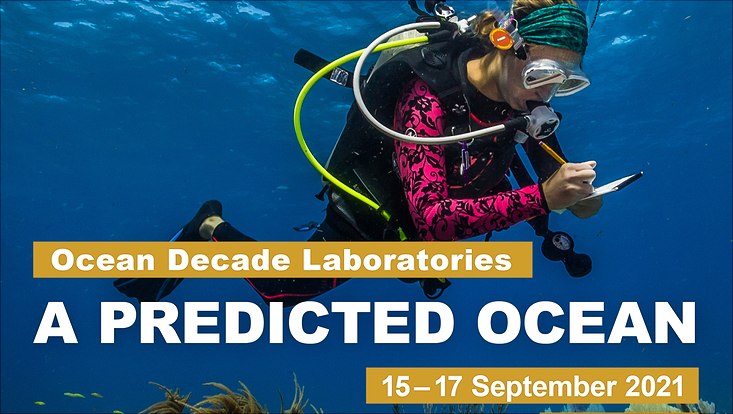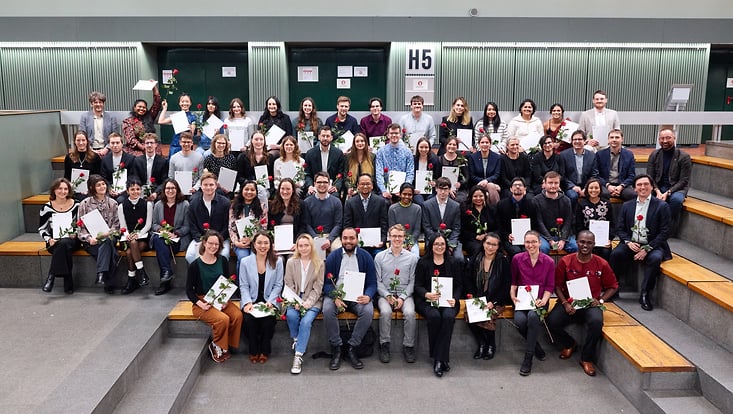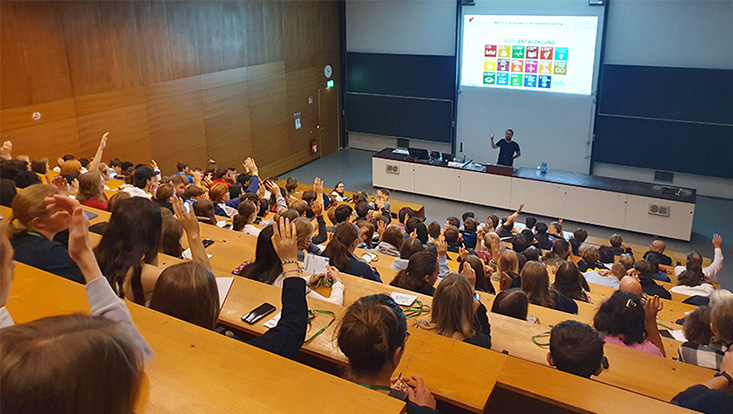Predicting the Ocean
8 September 2021, by UN/CEN

Photo: UN/Ocean decade
As part of the United Nations Ocean Decade, Prof. Detlef Stammer of the University's CEN hosts the international Ocean Lab 2 including lectures, workshops and discussions from September 15-17, 2021. Those interested are welcome to register online.
The ocean has an enormous impact on our planet – its climate, food resources, environment and other significant elements of our lives. By understanding the ever-changing conditions, we will get to "A Predicted Ocean" and sustain a healthy ecosystem.
Knowledge and solutions for a sustainable ocean economy are achieved through increased access to data, information, capacities and technologies. On this basis, ocean science can prepare, evaluate and lead the way.
The ocean has a strong influence on Earth’s climate system and on our weather. With its vast capacities of water, it stores heat, water, carbon and nutrients. Understanding physical and chemical ocean conditions and predicting future developments are fundamental to adapting and developing strategies for environmental and climate change – as well as enabling long-term decisions for economic benefits.
The Predicted Ocean Laboratory uses a value chain approach to bring everyone together – from small research groups to large companies, from input suppliers to service providers. Our goal is to address the need for more closely integrated observations and modelling, relevant collaborations around the world and connections to stakeholders and user communities.
The laboratory highlights existing gaps and potential solutions for ocean prediction. By embracing the Ocean Decade, the lab innovatively marks a collaborative way forward to establishing a systematic, interdisciplinary ocean prediction, and information systems to benefit society.
Registration and more information: UN Ocean Lab project
Program "A predicted ocean" Ocean Lab 2
15.09.2021
Where society understands and can respond to changing ocean conditions
Hosts:
- Craig McLean, National Oceanic and Atmospheric Administration (NOAA), United States of America
- Prof. Detlef Stammer, University of Hamburg, Germany
- Monika Jones, International TV and Conference Host, Germany
8.00 pm CEST, Session 1:
A Predicted Ocean: Benefit, Societal Need, and Ambition by 2030
Keynote Speakers (in speaking order):
- Dr. Wendy Watson-Wright, 7 Mile Bay, Canada, Benefits of a predicted ocean to society
- Ariel Hernán Troisi, Intergovernmental Oceanographic Commission IOC-UNESCO, France, Short-term forecasts and outlooks for marine conditions
- Fangli Qiao, First Institute of Oceanography, China, Requirements of long-term forecasts of the Ocean State
- Janice Trotte-Duha, Technological and Nuclear Development of the Brazilian Navy, Predicting long-term evolution of CO2
- Beth Fulton, CSIRO Oceans and Atmosphere, Australia, Predictions ecosystems and marine diversity
- Dr. Katja Fennel, Dalhousie University, Canada, Linking ocean predictions with a healthy ocean
10.30 pm CEST, Session 2:
From Observation to Prediction (Round Table)
How can we work toward implementing the concept of an integrated global observing system serving many users including with local enhancements down to the coastal level?
Panelists:
- Emma Heslop, Intergovernmental Oceanographic Commission IOC-UNESCO, France, Co-design of observing and prediction systems
- Herve Damlamian, Pacific Community (SPC), New Caledonia, Development of ocean prediction capabilities: short term to seasonal, decadal, climate, global to coastal (incl. coupling with land), physics to biogeochemistry & biology
- Dr. Mojib Latif, GEOMAR – Helmholtz Centre for Ocean Research Kiel, Germany, Limits of predictability
- Pierre Bahurel, Mercator Ocean International, France, Development and maintenance of modeling & data assimilation infrastructure
- Dr. Ramasamy Venkatesan, National Institute of Ocean Technology, Ministry of Earth Sciences, India, Establish and maintain observing systems: from physics to biology – from global to coastal (incl. governance aspects)
11.15 pm CEST, Session 3:
Ensure an Impactful Predicted Ocean (Round Table)
How can we connect to stakeholder and user communities to understand and respond to the needs of end users, down to the community level by developing a deeper understanding of regional issues and building partnerships across the value chain? Who are the user groups that are using the data for products and services?
Panelists:
- Derrick Snowden, US Integrated Ocean Observing System Office NOAA/National Ocean Service, United States of America, Data and product management and service
- Dr. Marjolaine Krug, OCIMS, Department of Forestry, Fisheries and the Environment (DFFE), South Africa, What does society need?
- Melissa Iwamoto, Pacific Islands Ocean Observing System (PacIOOS), United States of America, How to provide an easy, efficient, and timely information delivery service to users?
- Molly Powers-Tora, Pacific Community (SPC), Fiji, How to better engage and interact with the different user communities?
- Dr. Nadia Pinardi, University of Bologna, Italy, Input form constituencies
https://www.oceandecade-conference.com/en/a-predicted-ocean.html


